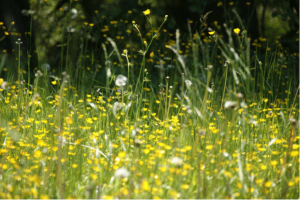Little Silver Pediatrics and Family Medicine • 200 White Road • Suite 212 • Little Silver, NJ 07739 732-741-5600

It’s that time of the year again. The flowers are blooming, the birds are singing and the kids are sneezing.
This year allergy experts are predicting that the allergy season will continue to worsen as it has over the past few years, however they’re also predicting that it might be a few days shorter than last year.
While there is no definite cure to the effects of seasonal allergies, there are a few tips to help manage your symptoms during this time of year.
Tips for Minimizing Seasonal Allergies at Home
According to WebMD there are several actions you may want to consider taking to help keep seasonal allergies at bay. Here are 4 simple tips that may be helpful during this time of the year for you and your family.
Keep your shoes at the door:
Pollen attaches to pretty much anything and everything. If your kids were playing in the yard or at their soccer game, make sure they leave their shoes at the door or in the garage so the pollen doesn’t get tracked throughout the house.
Wash up before bed:
If you normally take showers in the morning, you may want to change your routine this time of the year. Showering at night means the whole family will go to bed pollen-free and hopefully gain a better night’s sleep.
Close the windows:
Close the windows and rely on the air conditioning this allergy season when you can. By leaving the windows opened, you’re giving pollen an open invitation to your home and space.
Diet is key:
Helping your family maintain their daily intake of fruits or vegetables will provide lots of natural nutrients such as antioxidants that may help fight inflammation, a key component of allergies.
Diet and Natural Remedies for Seasonal Allergies
Have you ever thought about what you’re eating and how it might affect your seasonal allergies? Here are some recommendations on which foods may help to reduce your symptoms.
- Consider having a cup of tea or bowl of soup. Warm fluids help break up congestion in your airways, making it easier to cough up mucus.
- Not all bacteria are bad. Some research shows that healthy bacteria called probiotics, found in yogurt, may slightly reduce allergy symptoms.
- Choose foods high in omega-3 fatty acids. Research suggests that healthy omega-3 fatty acids found in fish like tuna, salmon, and mackerel could lower the risk of developing allergies.
- Avoid alcohol, if possible. Alcohol causes nasal congestion, which could make allergies worse.
- Visit your local farmers’ market for honey. Taking a teaspoon of honey is a common during this time of the year and may help reduce allergy symptoms.
- Stock up on the fresh fruit, especially apples, oranges and tomatoes. These three fruits are loaded with vitamin C, a great antioxidant to help reduce allergy symptoms.
- It’s time to take out the nutcracker. Nuts are great source of magnesium, which helps to increase lung function. This is extremely important when it comes to coughing and wheezing during allergy season.
If you have a question after reading and live in the area, call us and schedule an appointment with one of our Board-Certified pediatrics or family practice doctors to learn more about the effects of seasonal allergies. We will gladly assist you.
Now you know about seasonal allergies, pass it on!

